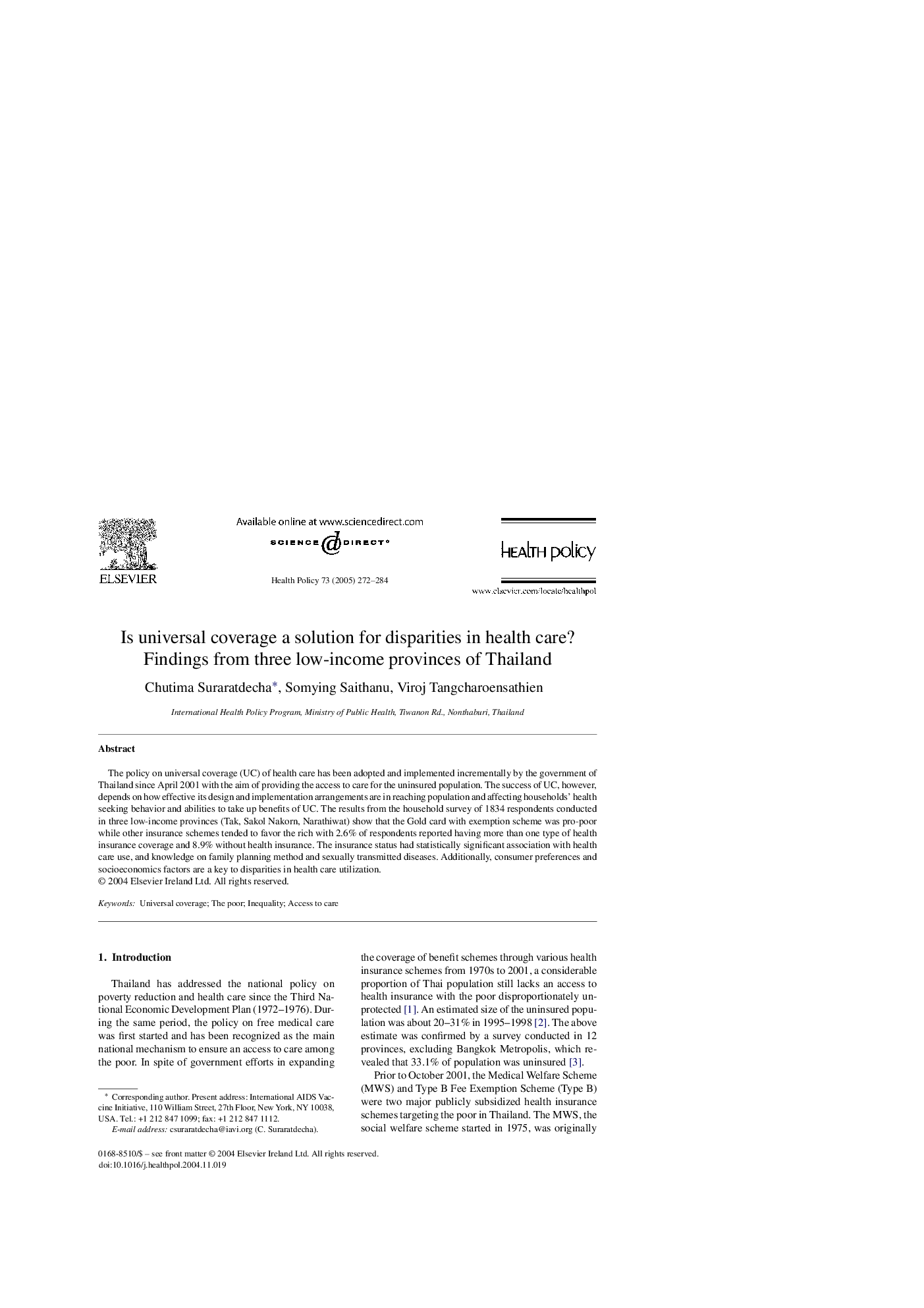| Article ID | Journal | Published Year | Pages | File Type |
|---|---|---|---|---|
| 9382978 | Health Policy | 2005 | 13 Pages |
Abstract
The policy on universal coverage (UC) of health care has been adopted and implemented incrementally by the government of Thailand since April 2001 with the aim of providing the access to care for the uninsured population. The success of UC, however, depends on how effective its design and implementation arrangements are in reaching population and affecting households' health seeking behavior and abilities to take up benefits of UC. The results from the household survey of 1834 respondents conducted in three low-income provinces (Tak, Sakol Nakorn, Narathiwat) show that the Gold card with exemption scheme was pro-poor while other insurance schemes tended to favor the rich with 2.6% of respondents reported having more than one type of health insurance coverage and 8.9% without health insurance. The insurance status had statistically significant association with health care use, and knowledge on family planning method and sexually transmitted diseases. Additionally, consumer preferences and socioeconomics factors are a key to disparities in health care utilization.
Related Topics
Health Sciences
Medicine and Dentistry
Public Health and Health Policy
Authors
Chutima Suraratdecha, Somying Saithanu, Viroj Tangcharoensathien,
